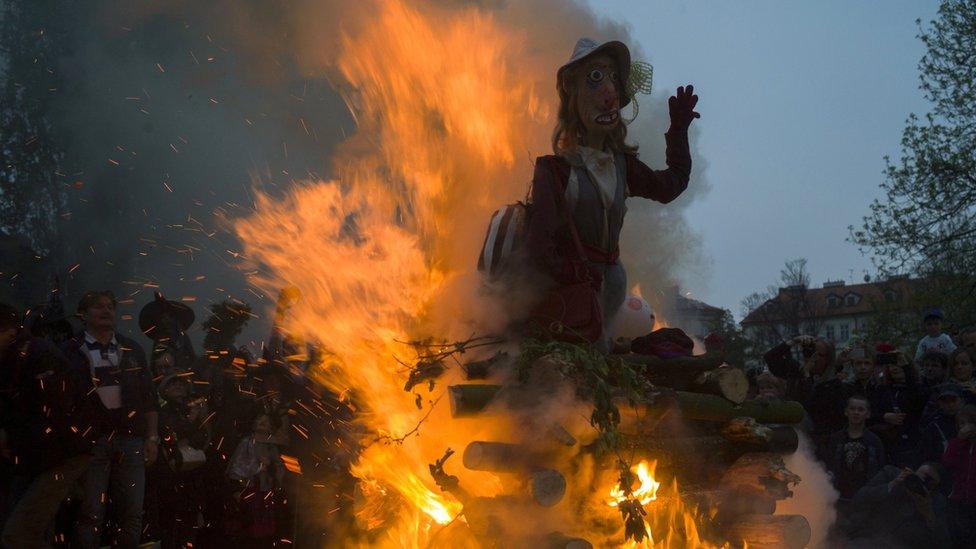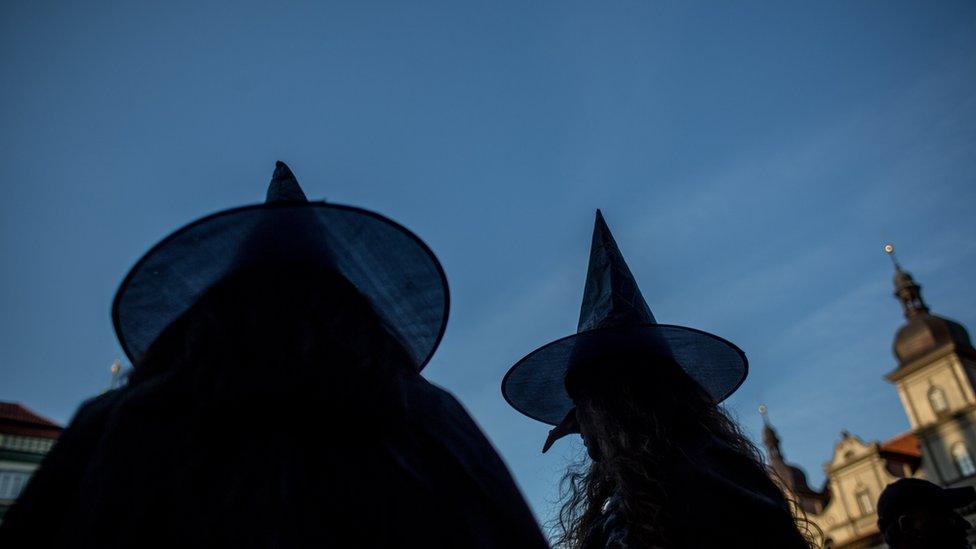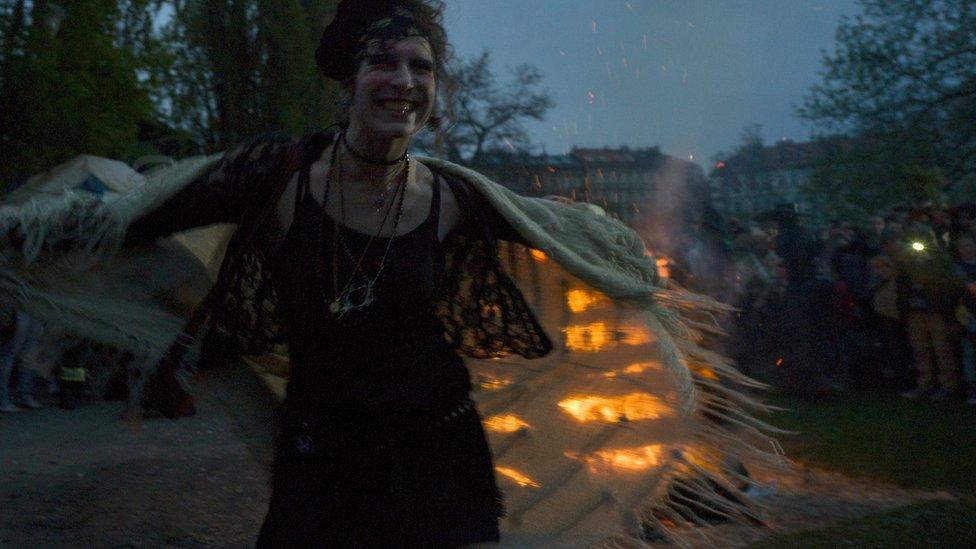Rain saves Prague witch-burning festival
- Published

The burning of witch effigies is a symbolic chasing away of the winter
The Czech capital Prague has lifted temporary restrictions on open fires, clearing the way for the eagerly-awaited annual Witches Night bonfires tonight.
The restrictions were put in place to minimise the risk of fires getting out of control during a period of "catastrophic drought, external," the iDNES news site reports.
All fires, including cigarettes, flying lanterns, grills and steam trains, were banned anywhere near parks and forests, according to Prague TV, external.
Last year's bonfires didn't take place due to the ban, which caused disappointment among enthusiasts of symbolic witch-burning as well as to the organisers, who had stacked wood in preparation for the spectacle.
But rain and falling temperatures a few days ago broke a warm spell, so the Czech Hydrometeorological Institute revoked the drought warning, external.
Nevertheless, the city authorities have taken precautions over future fire bans in order to avoid disappointment.
Fires for Witches Night may be able to go ahead, subject to specific requirements, even if there is a drought warning in place.
'Popular tradition'

For many Prague residents Witches Night is an opportunity to dust off their witch hats
"Burning witches is a popular tradition, especially among children, and it is of course always sad when they are disappointed.
"That is why we decided this year, despite the drought, not to forbid the fires held by city districts", Prague Deputy Mayor Petr Hlubuček said.
However, he urged residents to observe basic safety rules and avoid fires in hazardous places.
You might also be interested in:
Several events have been planned around Prague, involving witch effigies being burnt on top of giant pyres.
The event, which bears similarities to Halloween, is very popular, external, particularly among families, as it involves costume contests, games for the children, and outdoor barbeques.
Nocturnal orgy of evil

The festival appeals to young and old
The Prague witch-burning festival is a symbol of getting rid of the cold weather, as the earth welcomes spring.
The root of the ceremonial bonfire goes back to pagan times, and it is marked in many central and northern European countries.
It is known as Walpurgisnacht in German-speaking countries after Saint Walpurga, who was celebrated by German Christians for fighting pests, rabies and witchcraft.
A folk belief holds that on 30 April witches gather on high mountains. Fires used to be lit on hilltops in the hope that the smoke would drive them away.
The nocturnal orgy of evil provided the dark setting for Goethe's Faust being lured by Mephistopheles into the arms of a naked young witch on the Brocken Mountain.
The Czech capital provides the perfect setting for the witch-burning festival, given its history as a centre for black magic going back to Holy Roman Emperor Rudolf II, who invited Europe's leading practitioners of the occult to Renaissance Prague.
Reporting by Krassi Twigg
Next story: North Korea TV revamps weather report
Use #NewsfromElsewhere to stay up-to-date with our reports via Twitter, external.